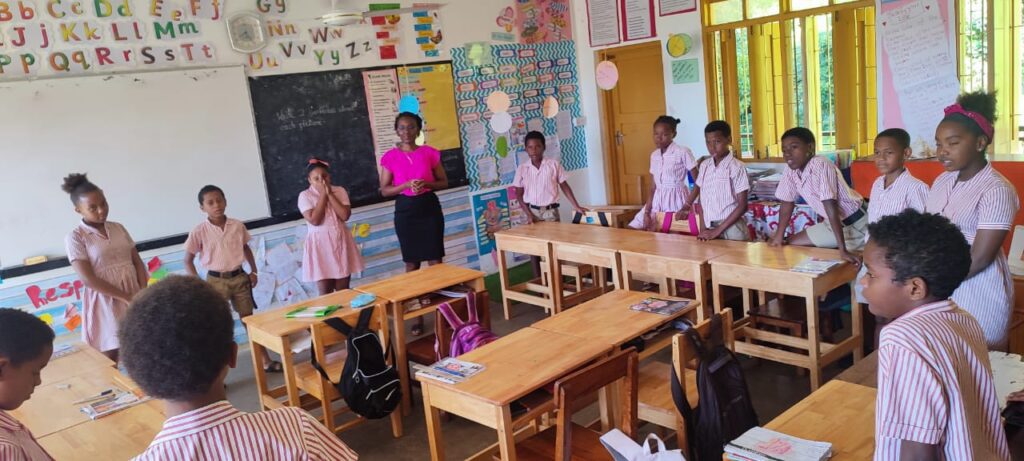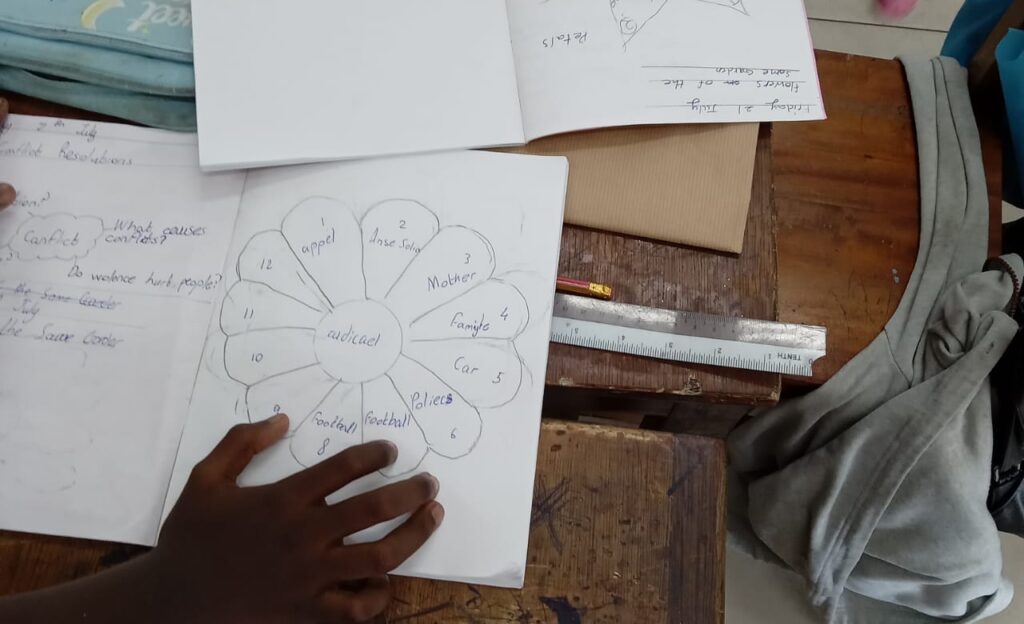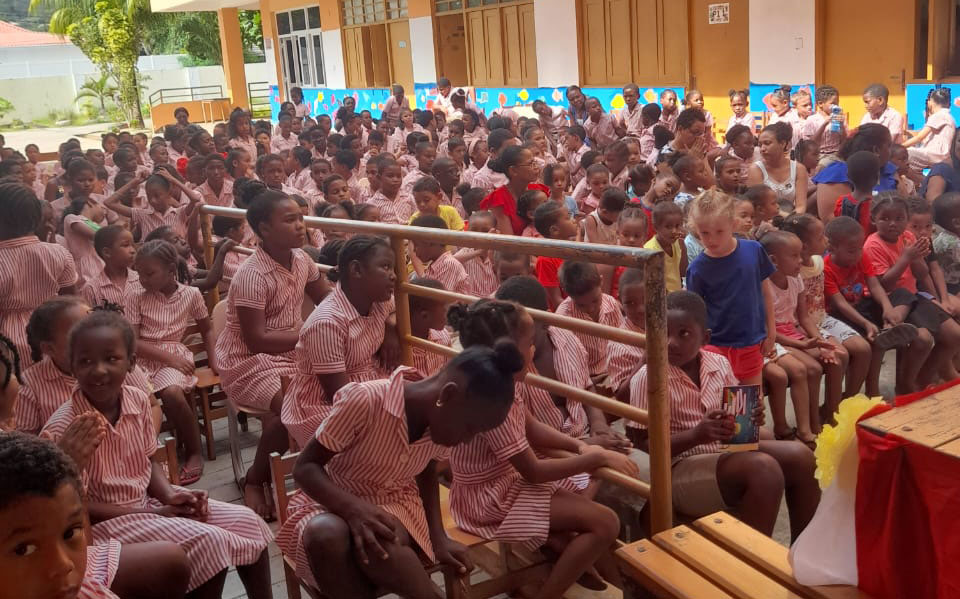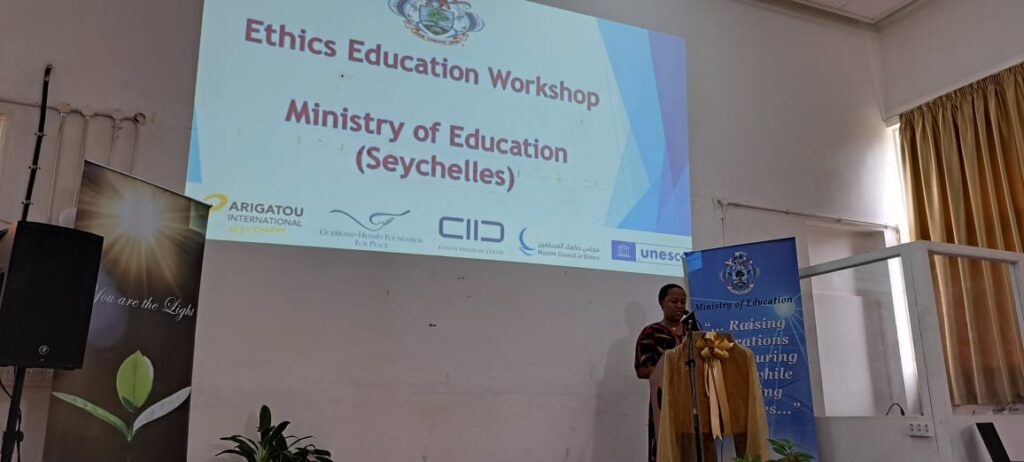
The Ethics Education Fellowship team in Seychelles successfully implemented the program with schoolchildren, achieving six main objectives and reaching 300 children throughout the country. This process, which spanned over 14 months, engaged 15 schools representing multiple regions, including the Inner Islands.
Considering certain social challenges that are prevalent among the communities in Seychelles, such as the need for better intercultural and interreligious awareness and integration, respect for diversity, tolerance, empathy and inclusivity in decision-making, the implementation process focused on building the learner’s character, resilience and ethos, and strengthening the social and community factors that boost children’s holistic development. The pilot project was therefore built on the premise of complementing existing curricula such as Religious Education and Personal, Social, and Citizenship Education (PSCE).
The implementation also focused on building sustainable partnerships between national educational institutions, civil society organizations, religious institutions, local government bodies and other relevant stakeholders, to create a wider impact and engagement.

Implementation with Children
Ethics education was introduced to in-class activities as an additional component to existing classes, namely, Religious Education and PSCE. This integration focused on building students’ critical thinking, reflective dialogue and problem-solving skills, as well as learner empowerment. The learners gained first-hand experience in collaboration, co-existence, tolerance, respect and appreciation of diversity through specially organized events such as interfaith and intercultural discussions, religious commemoration events, environment protection activities, and other similar events. This also encouraged learner-led actions, experiential learning and collective actions among the learning community. Through these activities, the students could turn their learning into practice and influence their communities to become more ethically conscious.
After the implementation, learners showcased increased levels of social awareness, collaboration, respect and responsibility and contributed to the communal upbringing within their classrooms and community settings.

Reflecting on this transformation, one teacher mentioned: “Now in class, when one starts to quarrel – they stop that child and say ‘Hey, let’s remember our lesson on conflict.’ They are able to recognize when things go wrong and make correct actions to build peace.” Further strengthening that statement, a student also mentioned, “From the lessons we learned I realized many things we were doing wrong – for example, before speaking you need to know and think carefully as it may hurt others’ feelings. We also learned that we should not be bullying people. It is also about helping others if they are being hurt.”
Strategic Implementation through Multi-stakeholder Buy-in
The Ethics Education Fellowship took a multi-stakeholder engagement approach, which facilitated the partnership with various organizations including the Ministry of Education of Seychelles, the Seychelles Institute of Teacher Education, the University of Seychelles, the Roman Catholic Diocese and the Seychelles Interfaith Faith Council. As a value addition to this collaboration, the fellows and teachers managed to bring in the school management boards, fellow teachers, school councils and Parent-Teacher Associations which positively influenced a whole-school approach, bringing the impact of the program beyond the school walls and into the communities.

“During these six months, I witnessed a lot of changes in my class, especially considering the things that impact the community. I used to be very adamant about my class rules. The pilot program enabled me to understand children and get to know them better, as rules were not helping much to understand their behaviors. They needed to appreciate that they are individuals, and, in the class, we become as a family,” mentioned a schoolteacher who was part of the program.
This wider community-based approach brought much value to the localization and implementation of the program by creating a platform to share the vision of ethics education, introduce the project in a non-invasive manner, and seek permission for the implementation and access to community resources.
The Ethics Education Fellowship
Since its launch in 2022, the Ethics Education Fellowship has been making remarkable contributions to strengthen the sustainable integration of ethics education for children in formal education settings. The program fosters the vision of promoting ethics education in various national levels and advocates for more peaceful and inclusive societies built on global citizenship values.
Implemented by the ministries of education of Bangladesh, Indonesia, Kenya, Mauritius, Nepal and Seychelles, the program functions as a collaborative effort among its partners: Arigatou International, the Guerrand-Hermès Foundation for Peace, the KAICIID International Dialogue Centre, the Muslim Council of Elders, the UNESCO Regional Office for Eastern Africa, and the UNESCO New Delhi Cluster Office, in collaboration with the National Commissions for UNESCO of the participating countries.
On behalf of the fellowship and its partners, Arigatou International would like to extend our deepest gratitude to the leadership of the fellows: Ms. Erica Derjacques-Inacio, Ms. Bettymai Sofa, Ms. Sharon Frederic, Ms. Diana Monthy and Ms. Sandra Jeanne, for their undeterred commitment and dedication. These five women have led the implementation process in Seychelles, building strong relationships with their local communities as well as governmental, non-governmental, religious and academic entities, creating valuable impact and value-addition for the Ethics Education Fellowship. This gratitude also extends up to the inspiring network of teachers, parents and children who were an integral part of this journey and be the torchbearers of inclusive and peaceful societies in the future.